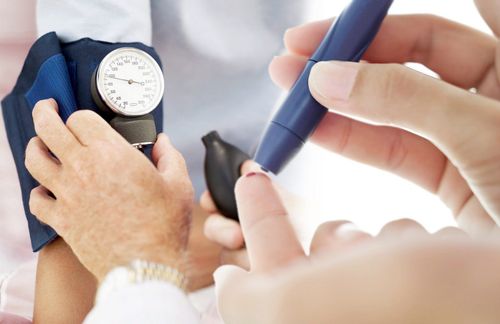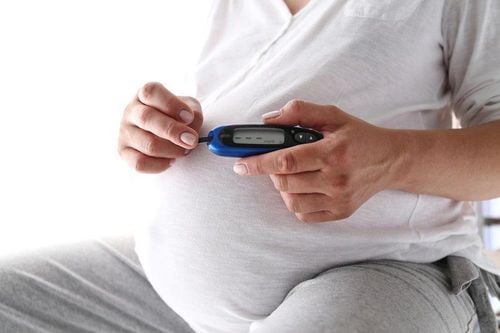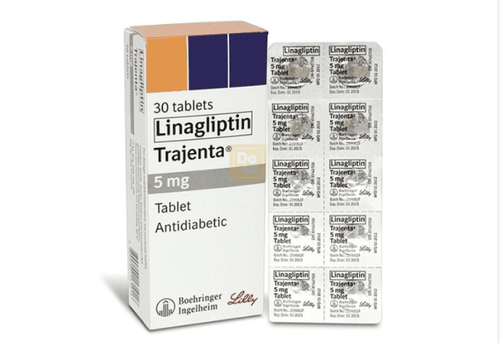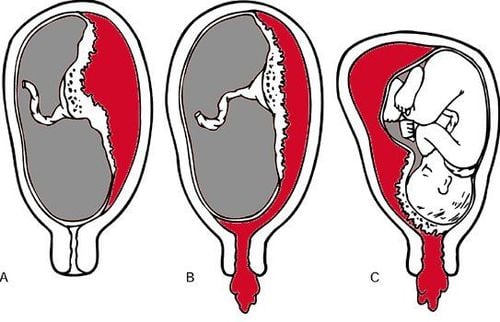This is an automatically translated article.
The article is professionally consulted by Master, Doctor Nguyen Van Thanh - Obstetrician and Gynecologist - Department of Obstetrics and Gynecology - Vinmec Nha Trang International General HospitalGestational diabetes can cause risks for both mother and baby such as birth defects, stillbirth, postpartum haemorrhage,... However, if detected and controlled in time, it can limit its effects. disease, thereby helping you have a healthy and safe pregnancy.
1. What is gestational diabetes?
Diabetes mellitus (also called diabetes) is a condition in which too much glucose (sugar) remains in the blood instead of being used for energy. When blood sugar is too high, it can cause health problems. Some women develop diabetes for the first time during pregnancy. This condition is called gestational diabetes. Women with gestational diabetes need special care both during and after pregnancy.
Trắc nghiệm: Chỉ số tiểu đường thai kỳ nguy hiểm như thế nào đối với thai nhi?
Không chỉ ảnh hưởng xấu đến sức khỏe người mẹ, tiểu đường thai kỳ còn gây nguy hại đến sự phát triển của thai nhi. Cùng làm bài trắc nghiệm sau đây để hiểu rõ hơn về sự ảnh hưởng của tiểu đường thai kỳ đối với thai nhi như thế nào nhé!The following content is prepared under supervision of Bác sĩ chuyên khoa I, Lê Hồng Liên , Sản phụ khoa , Khoa Sản phụ khoa - Bệnh viện Đa khoa Quốc tế Vinmec Central Park
2. Causes of gestational diabetes
Normally, the body produces the hormone insulin to keep blood sugar levels normal. During pregnancy, pregnancy hormone levels are higher than normal and the body has to make more insulin to balance blood glucose levels. But in some women, the body can't make enough insulin during pregnancy causing blood sugar levels to rise and causing gestational diabetes.
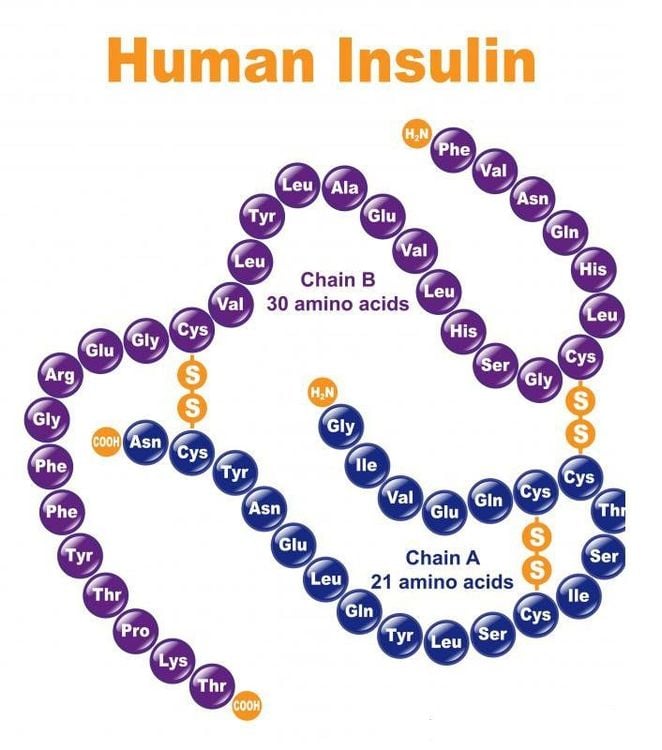
3. Does gestational diabetes go away on its own after giving birth?
Gestational diabetes can go away on its own after giving birth, however, women with gestational diabetes who do not control blood sugar well during pregnancy will have a higher risk of developing diabetes in the next few months. next pregnancy. Some women have mild diabetes before becoming pregnant but do not realize it and make it worse after giving birth and even carry the disease for life.
4. Subjects at high risk of gestational diabetes

The following are people at high risk of developing gestational diabetes
Being overweight or obese Not being physically active regularly Having a history of gestational diabetes in a previous pregnancy Having a baby weighing more than 4000g in previous pregnancy High blood pressure Have polycystic ovary syndrome (PCOS) Are African-American, Asian-American, Hispanic, Native American or Pacific Islander
5. How does gestational diabetes affect pregnant women?
Women with gestational diabetes, if not well controlled, can pass sugar to the fetus. When the level of glucose in the blood of the fetus exceeds the permissible level, the baby will be overweight. The baby can weigh more than 4 pounds at birth, and this leads to other complications for the mother, including:
Increased miscarriage rate, stillbirth High risk of cesarean delivery Heavy menstrual bleeding after At birth Urinary tract infection Long-term health effects High blood pressure puts pressure on the heart and kidneys Pre-eclampsia causes premature birth
6. How does gestational diabetes affect the fetus?
Babies born to mothers with gestational diabetes have an increased risk of the following problems:
Jaundice Respiratory diseases Hypoglycaemia and metabolic diseases in the newborn More likely to have trauma during vaginal birth: shoulder injury Risk of stillbirth Excessive growth and large fetus
7. Should you be tested for gestational diabetes?
All pregnant women should be screened for gestational diabetes. During the exam, your doctor will ask about your medical history to determine if you have risk factors for gestational diabetes. If you have risk factors, your blood sugar should be checked early in pregnancy. If the test results show you don't have any problems, your blood sugar will be measured between week 24 and week 28 of your pregnancy.
8. How to control gestational diabetes?
Some ways to help you control gestational diabetes:
More frequent prenatal visits to monitor the health of both mother and baby. Monitor blood sugar levels to keep them well controlled, helping to reduce the level of risk for both mother and fetus. You can use a blood glucose meter to check your blood sugar. This device measures sugar from a small drop of your blood. Adopt a healthy diet: Choosing foods during pregnancy is extremely important in controlling blood sugar. During pregnancy, you should eat regularly three meals and two to three snacks a day to avoid drops or spikes in blood sugar. Besides, you should regularly monitor your weight, because gaining weight too quickly or being overweight can also cause glucose levels to rise rapidly. Exercise regularly: Helps keep blood sugar levels in the normal range. First of all, you need to choose exercises that are suitable for your ability. Do 30 minutes of moderate-intensity exercise at least 5 days a week or at least 150 minutes a week. Walking is a great exercise for all pregnant women. In addition to weekly aerobics, you should also walk for 10-15 minutes after each meal. This helps with better blood sugar control. Medication use: Insulin is a medication recommended during pregnancy to help women control blood sugar levels. Insulin does not cross the placenta, so it does not affect the fetus. You can use oral insulin medication or insulin injections. Throughout your pregnancy, you'll need to regularly monitor your glucose levels to make sure the medication is working.
9. Tests to check the health of the fetus
Special tests may be needed to check the health of the unborn baby. These tests help detect possible fetal health problems, including:
Fetal movement count (number of kicks) : If fetal movement is less than normal , pregnant mothers should count the number of movements of the baby to monitor whether the baby is functioning normally.
Non-lash test : Measures the change in fetal heart rate as the fetus moves. Your doctor will wear a belt with a sensor around your abdomen to measure your baby's heart rate. The fetal heart rate will be recorded by the machine.
Biophysics test (BPP): This test includes monitoring the fetal heart rate (the same way it is done in a non-stimulating test) and an ultrasound examination. BPP checks fetal heart rate, movement, muscle tone and estimates the amount of amniotic fluid. There is also an improved biophysical profile test.
Most women with gestational diabetes, if controlled in time, will have a healthy pregnancy and give birth to a full-term baby. However, if complications occur to the health of both mother and baby, it will lead to premature labor, premature birth and difficulty giving birth (having a cesarean section).
Maternity package program at Vinmec International General Hospital helps customers complete the antenatal check-ups and necessary tests during pregnancy, including screening tests for gestational diabetes. Customers registered for Maternity Package are fully cared for and checked for health of mother and baby before birth - during childbirth and after birth, fully and conscientiously.
Please dial HOTLINE for more information or register for an appointment HERE. Download MyVinmec app to make appointments faster and to manage your bookings easily.
Reference source: Acog.org






